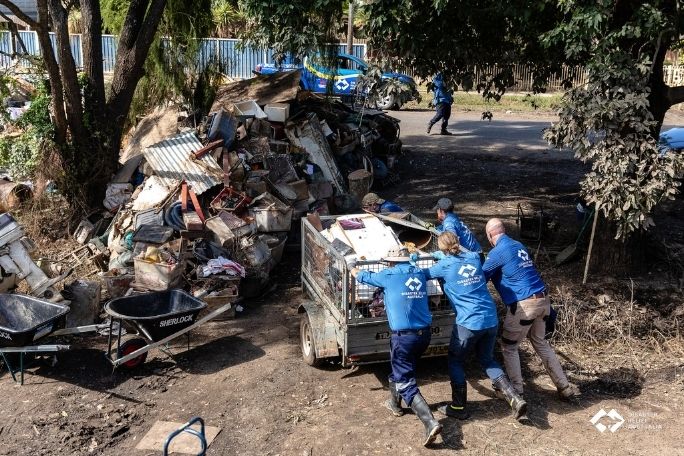Lesson summary
Students will investigate hazards and how volunteer services and organisations help communities prepare, respond and recover.
Learning intentions:
Students will...
- identify and explain the role played by organisations and volunteer services in the containment and reduction of natural disasters and hazards.
Success criteria:
Students can...
- research local volunteer organisations to find out what role they play in community disaster resilience
- disseminate information about why response and recovery services are important to build resilience.
Lesson guides and printables
Lesson details
Curriculum mapping
Australian Curriculum content descriptions:
Year 7 Geography:
- Causes, impacts and responses to an atmospheric or hydrological hazard (ACHGK042).
Year 8 Geography:
- Causes, impacts and responses to a geomorphological hazard (ACHGK053).
Syllabus outcomes: GE4-2.
General capabilities: Literacy, Critical and Creative Thinking, Personal and Social Capability, Ethical Understanding.
Relevant parts of Year 8 Geography achievement standards:
By the end of Year 8, students explain geographical processes that influence the characteristics of places and explain how places are perceived and valued differently. They compare alternative strategies to a geographical challenge, taking into account environmental, economic and social factors.
Resources required
- Butchers paper or poster paper and markers for the silent conversation activity
- Student Worksheets – one copy per student
Skills
This lesson is designed to build students’ competencies in the following skills:
- Communication
- Community engagement
- Creativity
- Critical thinking
- Cultural understanding
- Empathy
- Global citizenship
- Problem solving
- Social skills
- Collaboration
Additional info
We encourage you to undertake the free PD Course How to teach a unit on fire and flood resilience for tips on how to best deliver this lesson.
If you’re concerned about the challenging nature of these topics, consider the free PD Course How to approach trauma in the classroom for information on how best to support your students.
This lesson was made in partnership with
Minderoo Foundation (www.minderoo.org).


Welcome back!
Don't have an account yet?
Log in with:
By signing up to Cool.org you consent and agree to Cool's privacy policy to
store, manage and process your personal information. To read more, please see
our privacy policy here(Opens in new tab).
Create your free Cool.org account.
Many of our resources are free, with an option to upgrade to Cool+ for premium content.
Already have an account?
Sign up with:
By signing up to Cool.org you consent and agree to Cool's privacy policy to
store, manage and process your personal information. To read more, please see
our privacy policy here(Opens in new tab).